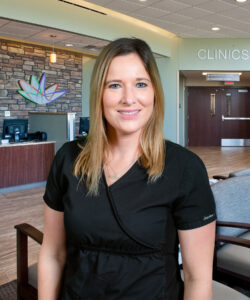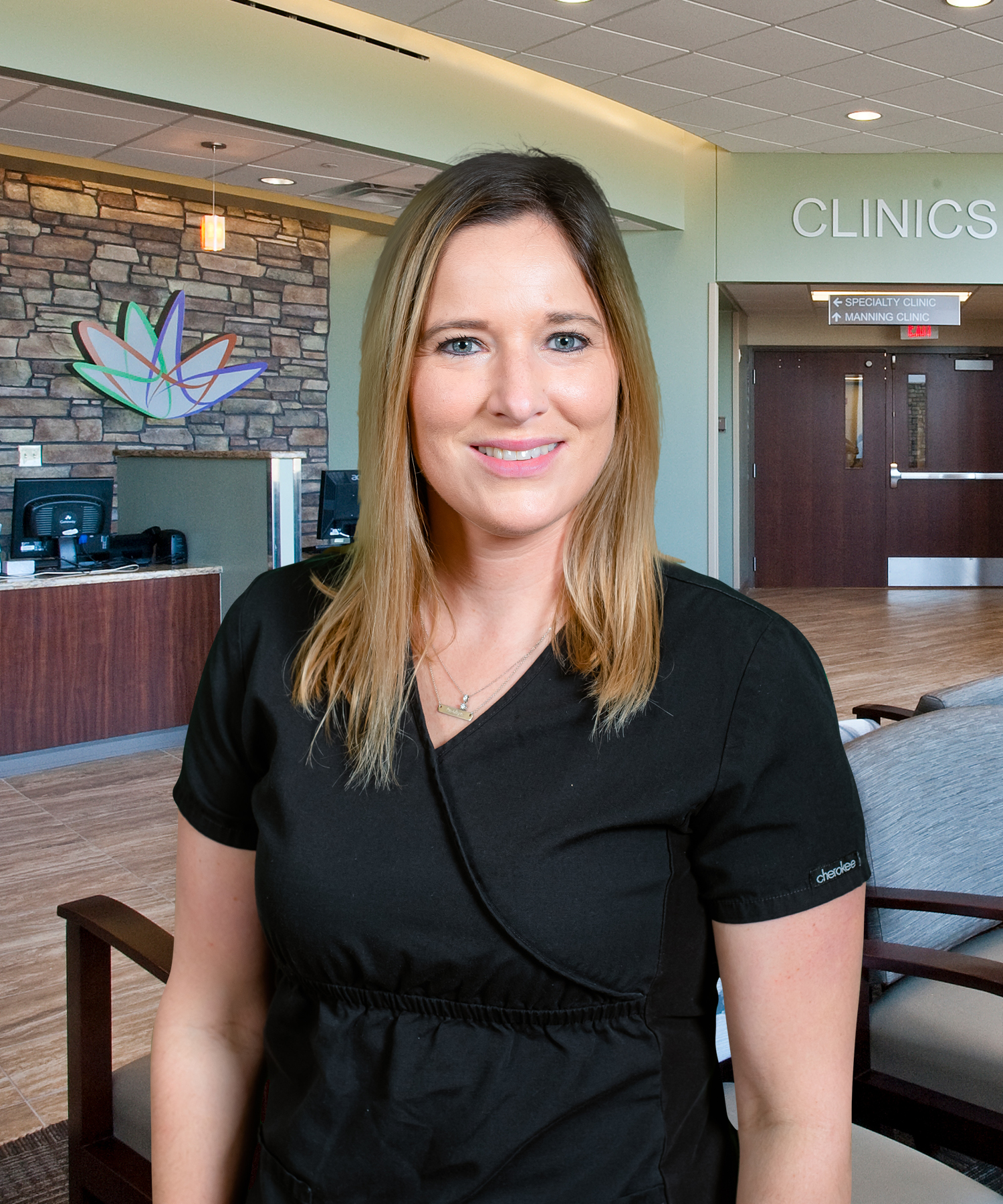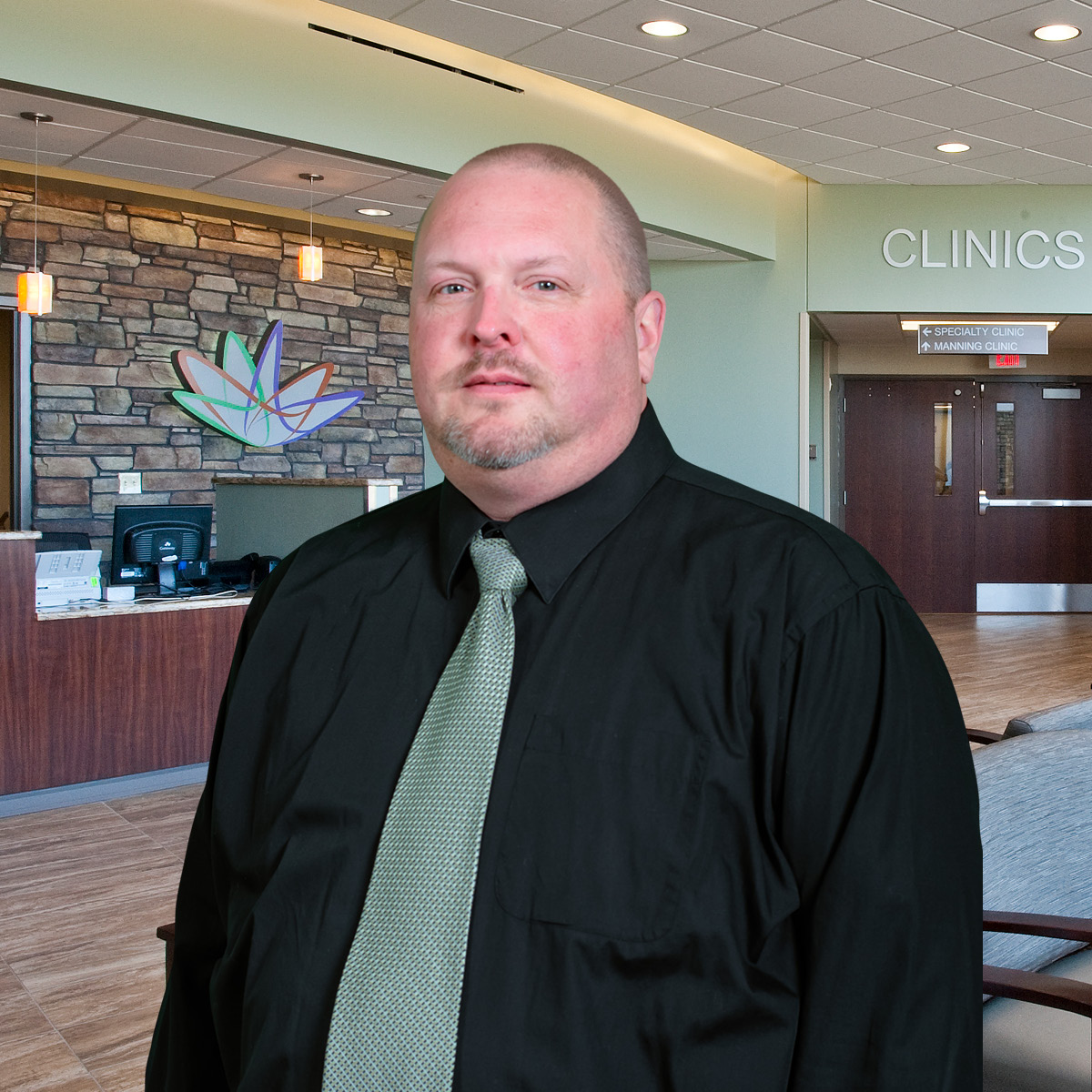When a car accident left a local mother with extensive injuries; significant chemotherapy and radiation treatment resulted in open, non-healing wounds for an area farmer; and non-healing sores on the feet and lower extremities of an elderly gentlemen resulted from the effects of diabetes, the Wound Care team at Manning Regional Health Care Center (MRHC) was able to heal their wounds quickly and effectively.
One integral team member for the Wound Care Clinic at MRHC is Clinical Coordinator, Kendra Tiefenthaler, RN, BSN. Kendra’s role in healthcare has evolved over the years, and she now works as a traveling wound care nurse, providing care throughout Western Iowa clinics, including MRHC. 
“My mother had her master’s in health care, and it allowed me to see firsthand how important nursing is and how rewarding health care can be,” said Tiefenthaler. This continues to be true of her healthcare experience as she helps heal numerous patients each year from their open wounds.
Tiefenthaler received her LPN and RN license from Iowa Central Community College. In 2019, she decided to pursue her BSN degree and graduated from Capella University. She has now been a nurse for 12 years and has worked in a variety of healthcare settings including North Central Correctional Facility, St. Anthony Home Health and Hospice, and now serving as the Clinical Coordinator in Wound Care for RestorixHealth.
“Kendra goes above and beyond the call of duty every day, making sure her patients are cared for and that they understand each step of their treatment plan,” said Chelsea Spear, RestorixHealth Physician and Community Liaison. “She is such an essential piece to the wound care clinics, and she prides herself on getting to know each patient within the clinic and community. She always tries to make the day of people around her better.”
Tiefenthaler works at three hospitals regularly, including MRHC, and she fills in at two other clinics as needed.
“Having the opportunity to work at MRHC for three plus years consistently has allowed me to become part of the community,” said Tiefenthaler. “I often feel like I am caring for my own family. Plus, MRHC has a great team environment which allows for good communication and more effective care.”
At the MRHC Wound Care Clinic, Tiefenthaler works alongside Dr. Luong when caring for patients.
“Dr. Luong is an extremely intelligent and caring doctor. Working with him allows our wound care patients to receive excellent and precise care at every visit,” shared Tiefenthaler.
Being a travel wound care nurse allows Tiefenthaler to provide consistent care across multiple locations and help keep care close to home for patients.
“Often times wound care requires multiple visits for positive outcomes,” explained Tiefenthaler. “Having regularly scheduled days in each community has allowed our patients to see a consistent nurse and provider each week while also saving them travel time and expenses.”
“I’m so thankful I was able to go to MRHC for wound care since it’s located in my hometown,” shared a local resident. “I was immediately impressed by Kendra’s genuine concern for my care, her efforts to get answers and help me, along with Dr. Luong’s attention and ongoing wound care treatment. The best thing about the care I received was their genuine care and advocacy.”
As Tiefenthaler reflects on how she has grown in her career, she feels grateful for the role and responsibility she has been trusted with.
“Health care is always evolving and being a clinical coordinator providing a specialty service throughout local western Iowa clinics is motivating and rewarding,” said Tiefenthaler.
MRHC Wound Care Clinic
The MRHC Wound Care Clinic, a recent recipient of RestorixHealth’s Patient Satisfaction Award and Clinical Distinction Award, is dedicated to optimizing outcomes and preventing lower limb loss in patients with non-healing wounds. The approach to wound care is aggressive and comprehensive, coordinating traditional and advanced therapies and techniques that are proven to reduce healing time and improve healing rates. Since non-healing wounds rarely result from a single cause, the Wound Care Clinic begins with a thorough evaluation and diagnostic testing to determine the underlying cause of the wound. A treatment plan is then developed to give patients the best chance for healing. Most treatments are covered by Medicare/Medicaid, HMOs, and other private insurance.
The MRHC Wound Care Clinic is held every Thursday. For more information about treatment plans, please call 712-655-8100.
About RestorixHealth
RestorixHealth, the nation’s leading wound care solutions company, develops and operates advanced wound healing centers and provides wound healing direct-care services, education, and advanced wound supplies nationwide. Forging strong relationships with their partners, RestorixHealth’s customized wound healing programs and solutions increase the access to care, lower or avoid direct care costs, reduce hospital admissions, improve outcomes, and increase patient and partner satisfaction. For more information, visit www.RestorixHealth.com.

